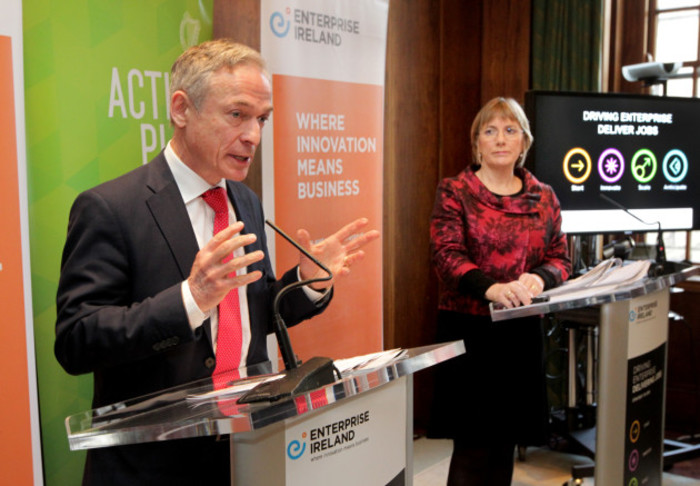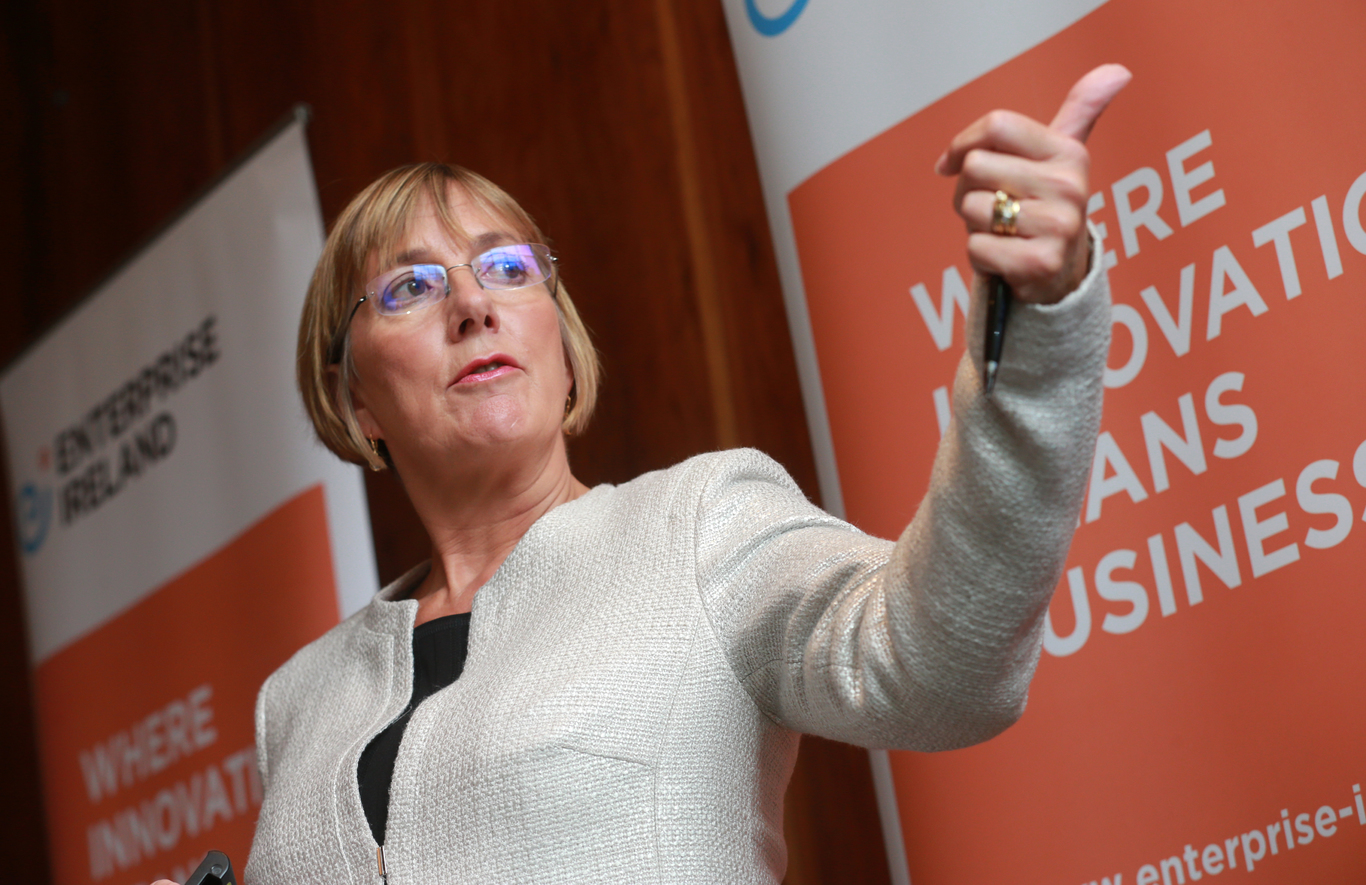Ireland's biggest startup backer reveals where the smart money is going
Enterprise Ireland’s Julie Sinnamon talks about the next big markets and that ‘record jobs growth’.
JULIE SINNAMON LETS the mask slip for just a second when asked about Enterprise Ireland’s job figures and, for a split second, looks a little pleased with herself.
As the head of Enterprise Ireland, over the last few years she’s frequently had the luxury of being the bearer of good news. Both herself and her counterpart in the IDA, Martin Shanahan, have probably become used to hearing the phrase ‘record jobs growth’ over the past few years.
At a press conference just before the general election, Shanahan was asked if the IDA should hold off on some jobs announcements until after the count, implying that the stream of jobs announcements was expected to be so large that it could influence the count.
The grin on the face of Jobs Minister Richard Bruton, who was seated next to Shanahan, stretched out of the door.
However, Sinnamon is a bit more restrained. Although the election has since passed, and the announcements obviously made little difference to the final result, a steady stream of new job declarations are still churning out on an almost daily basis.
Expectations
The challenge for Enterprise Ireland is to try and improve upon its performance in 2015. Last year its clients created a net 10,169 jobs, up from 8,476 the year before, bringing total employment at these companies to 192,223, a record high.
Sinnamon must now try and kick on from that, although she is careful to dampen expectations when it is put to her.
When asked if she hopes to match 2015’s performance she says: “It’s hard to know, because of a couple of things. Things like acquisitions are growing, Enterprise Ireland companies acquired by multinationals come out of our population and transfer to the IDA, so they’re counted in IDA figures, not EI figures.
“Last year was 10,000 (new jobs) net and if we have a good year this year we’ll be over the 200,000 mark and that is what our real focus is.”
Such a response is typical from Sinnamon, who speaks as much like a diplomat as she does a businesswoman. She is careful with her words and makes sure to say nothing that could come back to bite either her or her organisation.
 Julie Sinnamon with Jobs Minister Richard Bruton
Julie Sinnamon with Jobs Minister Richard Bruton
Sectors
So it’s somewhat surprising then that when she is asked to pick a sector that Enterprise Ireland is particularly interested in she barely hesitates: “Engineering”.
“If you go back about five years ago the engineering sector in Ireland largely sold into the Irish market. Today, the engineering sector is a global industry with some fantastic companies,” she says before reeling off some of Ireland’s larger home-grown industrial companies such as Dairymaster, Combilift and McHale’s Engineering.
She says that the organisation has been pairing up Irish companies with rivals in countries such as Germany to help broaden their horizons.
“We have been looking at what has happened in engineering in Germany (and) working with cohorts of those companies, exposing them to what has happened there with a view to bringing their (experience) back.”
Markets
Enterprise Ireland itself is also looking to cast a wider net. In its 2014-2016 strategy it targeted a 50% increase in exports over the three year period in high-growth markets, such as Latin America and India.
As part of this approach, the agency is planning to lead almost two dozen healthcare companies to Iran in May after economic sanctions against the country were lifted earlier this year.
Sinnamon says that as well as moving into new markets Enterprise Ireland has become better at identifying opportunities in countries that it already has a presence in.
“If you take China for example, we have become much better at developing the things that are in demand in the Chinese market and (showing) what Ireland has to offer, for example infant milk formula,” she said.
“There is the one-child policy changing in China, you’ve had scandals (with) the infant milk formula in China and we have a world-class product and therefore we have a competitive advantage.”

Women in business
Another area where Enterprise Ireland has had a concentrated focus is the number of businesswomen that it supports, an issue particularly close to Sinnamon as the agency’s first-ever female chief executive.
Under her watch the number of female-led businesses supported by Enterprise Ireland under its high-potential startup programme rose from 43 in 2014 to 61 last year, representing over one-fifth of all the early-stage companies compared to 7% in 2011.
However, it is still much rarer for a company led by a woman to bag funding compared to one led by a man. According to a recent report, less than 3% of venture capital funding allocated to tech companies makes its way to firms led by a female. Does Sinnamon think Ireland has a gender issue?
“I’m not sure the position in Ireland is different from anywhere else, it’s something that takes a long time to change. On access to finance it’s about working on the ambition and the confidence of the people looking for finance, helping them to pitch and having role models,” she said.
“Networking women with people who have successfully done it is really important; that’s why all the programmes we are doing are about providing a network for females to help each other with issues that they all face”.
Diplomatic as ever.






